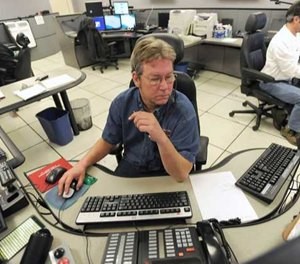psychologytoday.com
For a law enforcement officer, leaving active duty can be a difficult time. Whether or not the person freely chooses to leave, is forced to leave, medically retires, or just hits that “mark” of retirement, a strong camaraderie among fellow officers has been developed.
At some point, officers must be prepared to become civilians. A loss of police power and a feeling that one is no longer part of the cop family strongly accompanies the change. To leave this interpersonal web of protection is not easy and is likened to removing an integral part of your personality. In research conducted by police psychologist and author J.M. Violanti, an officer commented:
Read more of this interesting article here.
Copyright © 2007-2019 by Dr. Brian A. Kinnaird. Reprinted with permission by the author.
For more articles, visit The Hero in You column at Psychology Today. For law enforcement-related books, articles, networking, training, or speaking opportunities, contact Brian Kinnaird at brian.kinnaird@gmail.com.
References & Suggested Readings
Figley CR. Psychological adjustment among Vietnam veterans: an overview of the research. In C.R. Figley (Ed) Stress Disorders Among Vietnam Veterans-Theory, research, and treatment. New York: Brunner/Mazel, 1978.
Gilmartin KM. Hypervigilance: A learned perceptual set and its consequences on police stress. In J.T. Reese and H.A. Goldstein (Eds) Psychological Services for Law Enforcement, (pp 443-446). Washington, DC: U.S. Government Printing Office, 1986.
Jarhead. Don Michael Paul. Universal Pictures, 2005.
Violanti JM. Traumatic stress in critical occupations: Recognitions, Consequences, and Treatment. Charles C. Thomas Publisher, 1997.
Violanti JM. Police Retirement: The impact of change. Springfield, Illinois: Thomas, 1992.
About the author
Brian A. Kinnaird, PhD, is a cop-turned professor, author, trainer and police advocate. A 10-year law enforcement veteran in Ellis County, KS, he started his career as a deputy sheriff assigned to the jail division prior to being promoted to patrol. During his tenure, he served as an FTO, lead DT instructor and tactical team operator. He was a guest use of force instructor at the Kansas Law Enforcement Training Center, teaching defensive tactics to recruit academies.
Dr. Kinnaird is a charter member of ILEETA and served as editor of the Use of Force Journal and ILEETA Review. He has trained and presented to corrections, law enforcement and human services agencies for over 20 years. He is judicially qualified as an expert and continues to consult and train current and former law enforcement.
As a career educator, Dr. Kinnaird is a criminologist, professor, researcher and author. He holds a B.A. in sociology, M.L.S. in criminal justice administration, and Ph.D. in criminal justice. He is a columnist in the law and crime section of Psychology Today. Contact him at brian.kinnaird@gmail.com.




Tariffs won’t solve U.S.-Mexico drug crime — we must work together
dallasnews.com
By Toyota
What if Mexico threatened a 25% tariff on American corn and soybeans unless the U.S. stops providing an estimated $19 billion to $29 billion in yearly drug profits to Mexican criminal groups and blocks weapons trafficking to Mexico?
Mexicans can make a strong case that the illicit money, drug demand, and guns feed the violence and corruption plaguing their country. However, that would not be a constructive way to tackle shared problems.
Great commentary–read more.